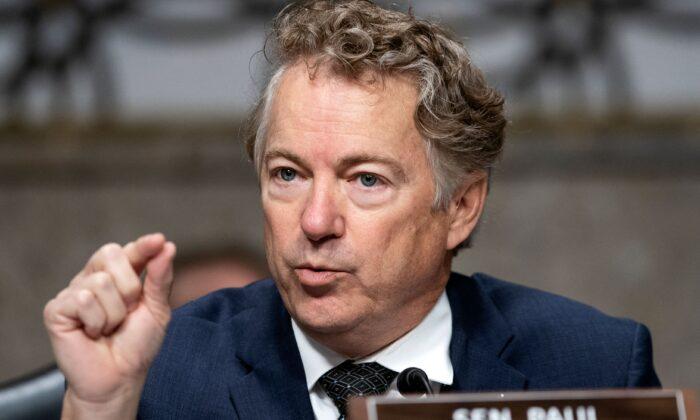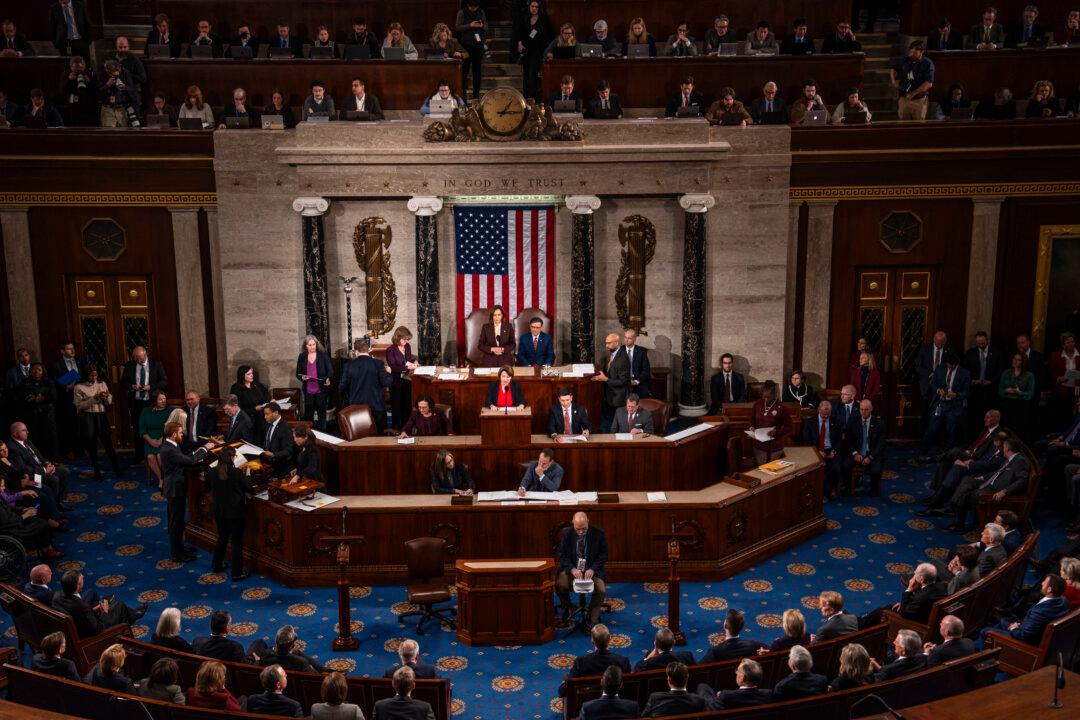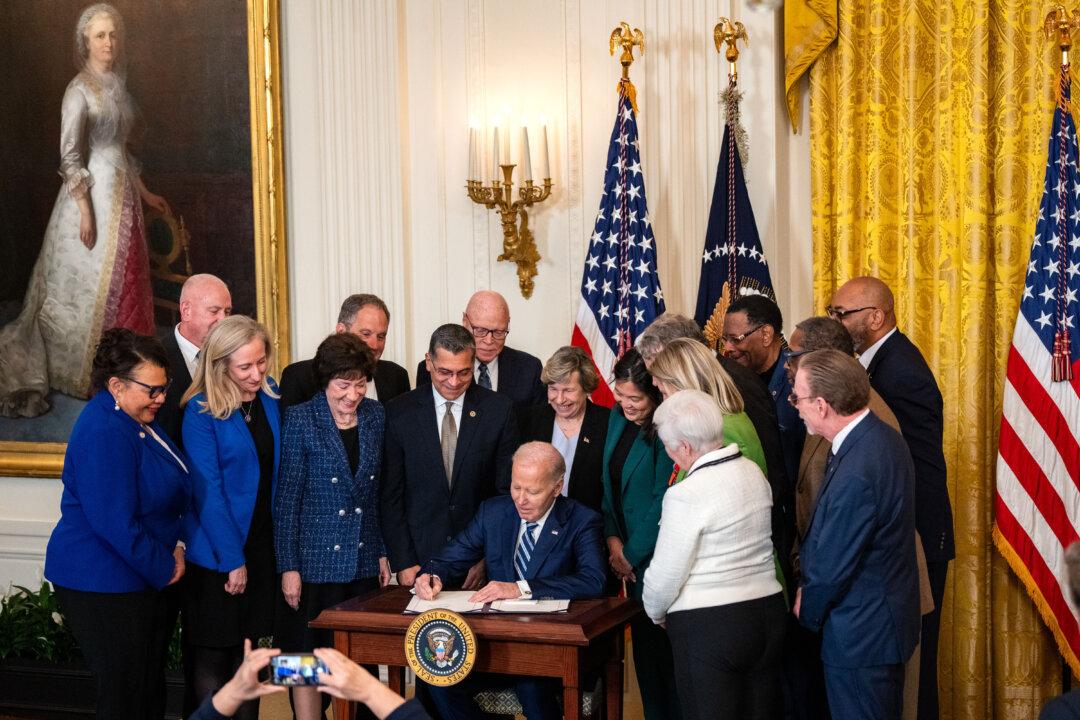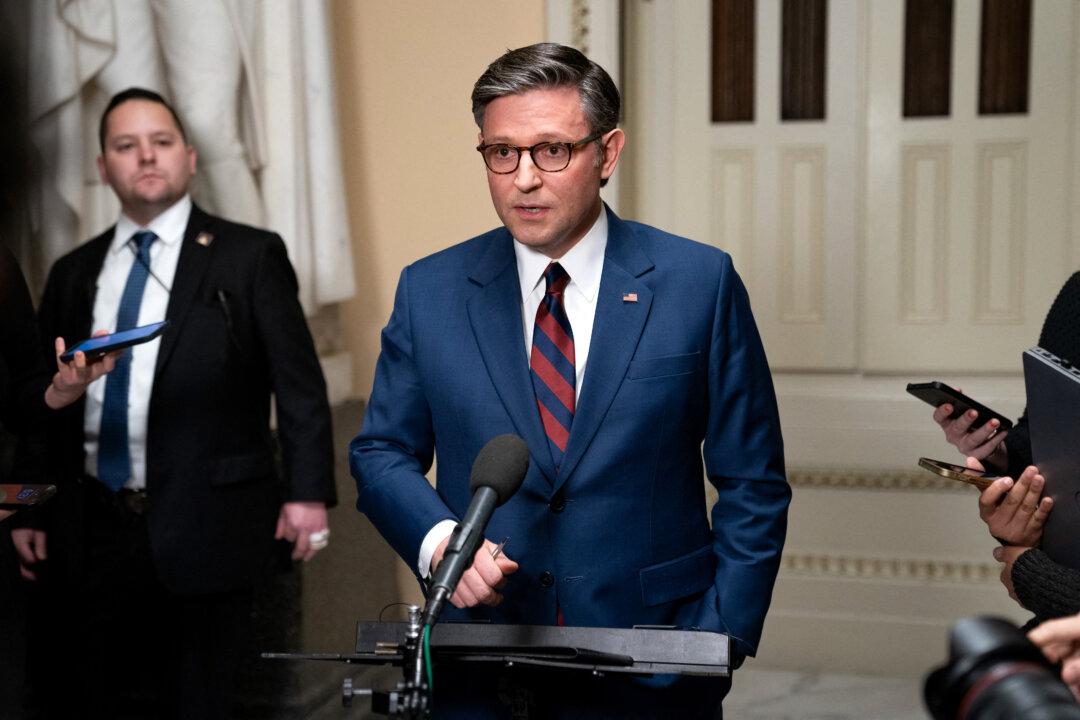“I think it’s important to know that we don’t have any money to send. I mean, we have to borrow the money from China to send it to Ukraine,” Paul explained. “And I think most people kind of get that, and many Republicans will say that and understand it when it’s a new social program, but if it’s military aid to a country, they’re like, ‘Well, we can borrow that. That’s a justified borrowing.’”
Currently, the U.S. national debt is inching toward $30.5 trillion, with annual federal spending outpacing annual federal revenue by over $2 trillion. To continue to fund obligations appropriated by Congress, the United States has to take on debt, much of which is purchased by Chinese buyers.
On May 12, Paul refused to advance the $40 billion Ukraine bill until changes were made to the legislation that would ensure an inspector general could monitor exactly how the money would be spent. Ultimately, the Senate invoked cloture without making any changes to the final draft.
“My oath of office is to the U.S. Constitution, not to any foreign nation, and no matter how sympathetic the cause, my oath of office is to the national security of the United States of America,” Paul said on the Senate floor on May 12.
“We cannot save Ukraine by dooming the U.S. economy. … Gasoline alone is up 48 percent, and energy prices are up 32 percent over the last year. Food prices have increased by nearly 9 percent. Used vehicle prices are up 35 percent for the year, and new vehicle prices have increased 12 percent or more,” he continued.
Paul noted that inflation “doesn’t just come out of nowhere” while pointing to deficit spending, noting that the United States spent almost $5 trillion on “COVID-19 bailouts,” which have led to sky-high inflation.
“Americans are feeling the pain, and Congress seems intent only on adding to that pain by shoveling more money out the door as fast as they can,” Paul said.
Hoping to hurry along the process to passing the bill, Senate Majority Leader Chuck Schumer (D-N.Y.) and Senate Minority Leader Mitch McConnell (R-Ky.) offered to allow an amendment vote making changes to the language that Paul sought.
However, Paul refused, demanding that his changes be included in the text of the legislation itself.
Both Schumer and McConnell decried Paul’s effort, calling it “obstructionist” and “isolationist.”
“His obstruction will not prevent Ukraine aid from ultimately passing the Senate,” Schumer said on the Senate floor on May 16. “One way or another we are going to get this done and send a clear message to Ukraine and the world that America stands on the side of democracy and against Putin’s deeply immoral campaign of violence.”
On May 15, following a trip to Ukraine, McConnell commented, “There have always been isolationist voices in the Republican Party. I think one of the lessons we learned in World War II is not standing up to aggression early is a huge mistake.”
Paul was joined in opposing the bill by 10 other GOP senators, including Sens. Josh Hawley (R-Mo.), Mike Crapo (R-Idaho), Mike Lee (R-Utah), Bill Hagerty (R-Tenn.), Mike Braun (R-Ind.), Marsha Blackburn (R-Tenn.), John Boozman (R-Ark.), Roger Marshall (R-Kan.), Cynthia Lummis (R-Wyo.), and Tommy Tuberville (R-Ala.).
Ultimately, the small contingent of opponents have few options to further stall passage of the bill, which is all but certain to pass and be signed by President Joe Biden, who originally requested the package in April.





